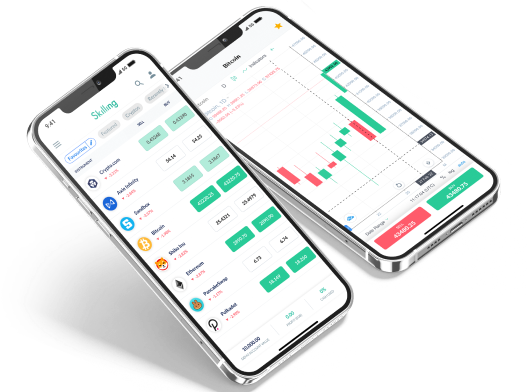Access 1,200+ global CFDs instruments.
Access a plethora of trading opportunities across the financial markets.

Understanding the difference between gross and net income is key for both investors and business owners. These terms are often used in financial statements and can significantly impact how a company's financial health is perceived.
This article will explain the distinctions between gross and net income, provide examples, discuss their importance in companies, and highlight what traders should take note of when analyzing a company’s gross and net income.
Gross vs Net: What's the difference?
Gross income and net income are fundamental concepts in finance and accounting, each representing different stages of a company's revenue and expenses.
Gross income: Gross income, also known as gross profit, is the total revenue generated by a company from its sales or services before any expenses are deducted. It is calculated by subtracting the cost of goods sold (COGS) from total revenue. Gross income provides a snapshot of a company's efficiency in producing and selling its products or services.
Net income: Net income, also known as net profit or net earnings is the amount of money a company retains after all expenses, including operating expenses, taxes, interest, and depreciation have been subtracted from the total revenue. Net income reflects the company’s overall profitability and financial health.
Examples of gross & net income
Let’s consider an example involving a well-known Norwegian company, Equinor ASA, a major player in the energy sector.
Equinor ASA’s financials:
- Gross: Equinor reported a total revenue of NOK 780 billion for a recent fiscal year. The cost of goods sold (COGS) was NOK 480 billion. Therefore, the gross income would be NOK 300 billion (780 billion - 480 billion).
- Net: After accounting for operating expenses, taxes, interest, and other deductions totaling NOK 220 billion, Equinor’s net income would be NOK 80 billion (300 billion - 220 billion).
This example illustrates how gross income represents the initial profit before expenses, while net income shows the final profit after all expenses are deducted.
Importance of gross and net income in companies
Both gross and net income are critical metrics for assessing a company's financial performance, but they serve different purposes.
Gross:
- Efficiency measurement: Gross income helps assess how efficiently a company produces its goods or services by comparing revenue with the direct costs of production.
- Pricing strategy: It aids in evaluating the effectiveness of a company's pricing strategy and cost management.
Net:
- Overall profitability: Net income provides a comprehensive view of a company's profitability after all expenses have been accounted for.
- Investment decisions: Investors and analysts use net income to make informed decisions about the company’s financial health and potential for future growth.
- Operational effectiveness: It indicates how well a company manages its overall operations, including administrative and financial expenses.
Practice with a Demo Account
Try our demo account and experience real market conditions.

What traders should take note of with companies' gross and net incomes’
Traders analyzing companies' financial statements should pay close attention to both gross and net income, as they offer insights into different aspects of financial performance.
- Revenue trends: Observe the trend in gross income over multiple periods to gauge the company’s sales growth and production efficiency.
- Expense management: Analyze the components of net income to understand how well the company controls its operating expenses, taxes, and other financial obligations.
- Profit margins: Compare gross profit margins and net profit margins to assess the company’s profitability at different stages. A high gross margin with a low net margin may indicate high operating expenses.
- Industry comparison: Benchmark the gross and net income against industry peers to evaluate the company’s competitive position.
- Earnings stability: Consider the stability and consistency of net income, which can impact the company’s ability to pay dividends and reinvest in growth opportunities.
Summary
Understanding the difference between gross and net income is essential for accurately evaluating a company’s financial health. Gross income highlights the efficiency of generating revenue relative to production costs, while net income reveals the company’s overall profitability after accounting for all expenses.
For traders and investors, analyzing both metrics can provide valuable insights into a company’s operational performance and financial stability.
Experience Skilling's award-winning platform
Try out any of Skilling’s trading platforms on the device of your choice across web, android or iOS.

FAQs
1. What is gross income?
Gross income is the total revenue generated by a company from its sales or services before any expenses are deducted.
2. What is net income?
Net income is the amount of money a company retains after all expenses, including operating expenses, taxes, interest, and depreciation, have been subtracted from the total revenue.
3. Why are gross and net income important?
Gross income measures a company's production efficiency, while net income indicates overall profitability and financial health.
4. How do traders use gross and net income?
Traders use these metrics to assess revenue trends, expense management, profit margins, industry comparison, and earnings stability.
5. Can gross and net income vary significantly?
Yes, gross and net income can vary significantly due to the impact of various expenses on the company's revenue.
If you are interested in exploring different trading opportunities to help diversify your portfolio, understanding the price of silver can offer valuable insights into the commodities market, although past performance does not guarantee or predict future performance.











